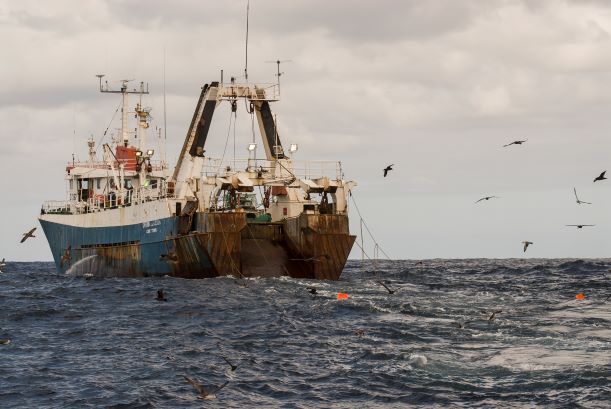A recent report from WWF shows for the first time exactly when, where and how unregulated fishing is happening in the Indian Ocean and its impacts on threatened species.
According to the report, which was published last week, the Indian Ocean is home to some of the most important fisheries on earth, accounting for over 14% of global wild-caught fish. However, 30% of assessed stocks in the Indian Ocean are not being fished within biologically sustainable limits. To this should be added unregulated fishing.
Unlike illegal and unreported fishing, unregulated fishing is conducted by vessels without nationality or vessels flying the flag of a country not party to the regional fisheries organization (RFMO) governing a specific fishing area.
The report finds that the existing legal frameworks for fisheries in the Indian Ocean suffer from regulatory gaps in both the geographical areas and the species they cover, resulting in unregulated fishing across the region. Most fishing vessels in the Indian Ocean are from China, South Korea and Singapore.
Different forms of octopuses, such a squid and cuttlefish, are imported in huge quantities to the EU. The rapid escalation of unregulated fishing of squid poses a direct threat not only to the squid, but to the oceanic food web in which they play a critical role, including as a food source for tuna. Indian Ocean tuna fisheries supply nearly 20% of global demand.
“Trade routes are difficult to fully trace with the lack of transparency but we know that some products end up in the EU market for sure,” said Dr Antonia Leroy, Head of Ocean Policy at WWF European Policy Office, to The Brussels Times.
Is the import compliant with EU regulation? “It's against the IUU regulation as we should not import unregulated fish products, but again identifying unregulated products requires more transparency and traceability along the value chain,” she replied.
IUU stands for a Council regulation which entered into force in 2010 and established a system to prevent, deter and eliminate illegal, unreported and unregulated fishing. Such fishing “depletes fish stocks, destroys marine habitats, distorts competition, puts honest fishers at an unfair disadvantage, and weakens coastal communities, particularly in developing countries”.
“As far as the EU is concerned, the fight against IUU fishing is taken very seriously and the EU seeks to rigorously fulfil its international obligations,” a source in the European Commission told The Brussels Times. “This applies to all fisheries products covered by the IUU Regulation, including squid.” The Commission considers that all three dimensions of IUU fishing are equally important.
WWF writes that action is required by countries with fishing vessels in the Indian Ocean to close the regulatory gaps. ”Important market states such as the EU, Japan, the USA and China must ensure a transparent supply chain to remove outlets for IUU products to enter the international seafood market.”
The EU regulation is considered the best system available and should be applied universally, according to researchers in maritime affairs.
M. Apelblat
The Brussels Times

